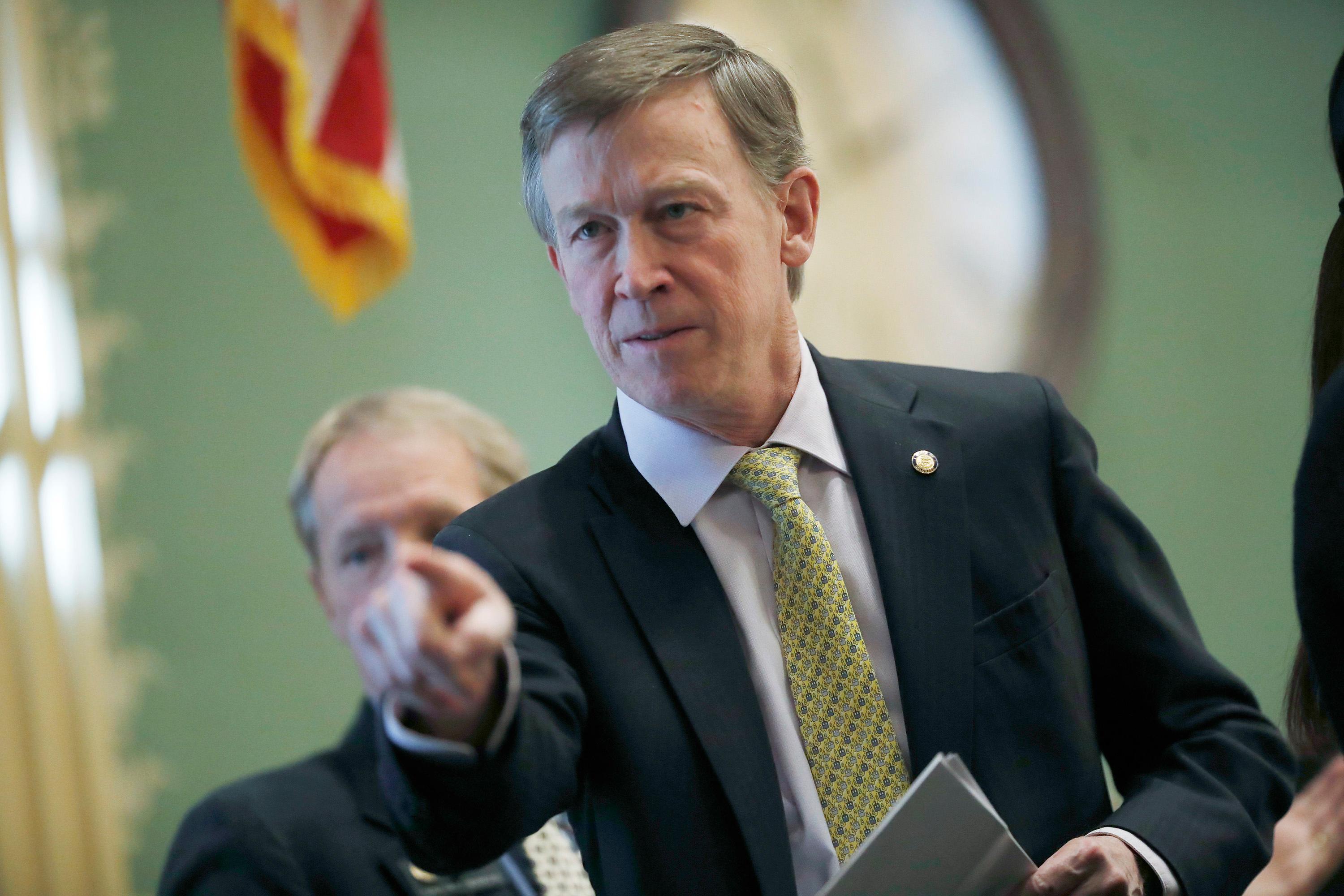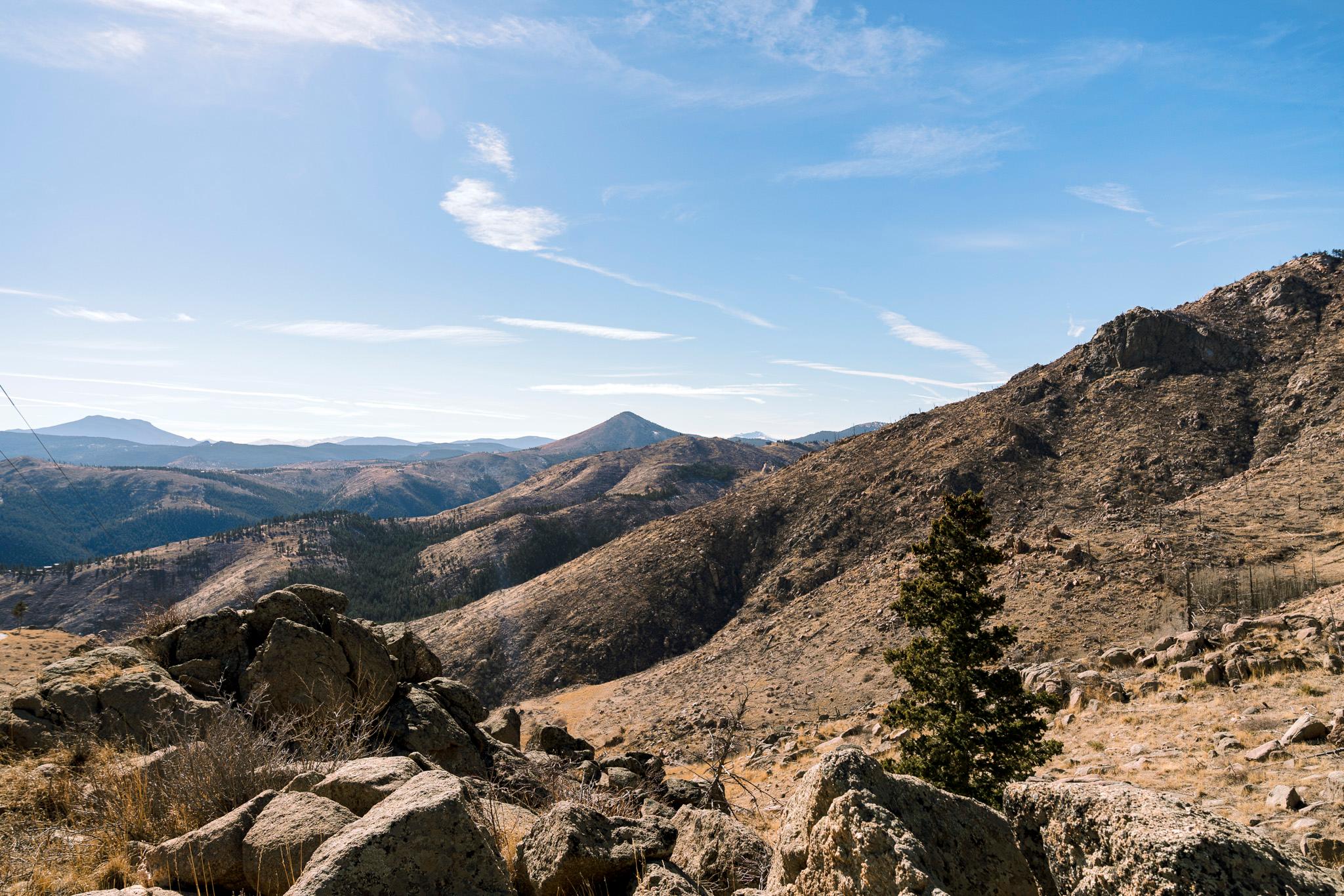

Final State of the State addresses are a chance for governors to do a couple things: define their legacies, and lay out their closing agenda. Gov. John Hickenlooper did both Thursday at the state Capitol, and called for bipartisanship and cooperation as well.
“When we first met in this room, our economy was in disarray,” Hickelooper said, reminding the lawmakers of economic conditions in 2011. “We had just ended the worst year for job seekers in generations. We were 26th in unemployment and 40th in job growth, Nearly 400,000 Coloradans were unemployed or underemployed, And tens of thousands more had dropped out of the workforce.”
Now, unemployment is at 2.9 percent, among the lowest in the country. “We shattered unemployment records, tourism records, and hosted world-class cultural and music events. The state has become a bridge between nonprofits and the private sector. We’ve leveraged a quarter of a billion dollars through public-private partnerships for community initiatives that have touched millions of lives,” he said.
- Transcript & Video: Hickenlooper's Final State Of The State Address
The governor presented a laundry list of agenda items, including finding “the right solution to PERA’s unfunded liability,” an issues both House and Senate leaders addressed Wednesday. Legislation to safely cap orphan oil and gas wells, funding for education and transportation, helping rural communities’ economies, and continuing to build out broadband internet for rural areas.
Education and transportation were among the issues most front and center.
Pointing out that, “we remain roughly three-quarters of a billion dollars behind the funding Colorado voters placed in our constitution nearly two decades ago,” Hickenlooper said lawmakers needed “to be honest with ourselves and the voters” about funding issues.
“We’re pumping an additional $100 million above enrollment and inflation into our schools this year, and adding $10 million to address teacher shortages in rural areas. We also proposed repeating this year’s $30 million to rural schools next year,” he said. But even with that spending, “the number won’t go down much without their help. And if we are being really blunt, it hurts rural Colorado more than the Front Range.”
He wants voters to decide whether or not the state should raise new revenue for transportation.
“Not only do we under-fund maintenance by more than $200 million a year, but we also have a project list of $9 billion. Total needs are estimated to be twenty-five billion dollars by 2040,” the governor said.
“We haven’t increased the state gas tax in over 25 years. We’ve been driving on a flat tire for a quarter century. All while Utah raised their gas tax twice,” he said. “Coloradans deserve the opportunity to vote on whether we need new resources and where they should come from. It’s time to go to the voters.”
“That's basically asking for a tax increase," said Senate President Kevin Grantham, whose party insists on issuing bonds, not raising taxes, for the state's increasingly congested highways.
Citing an improved budget outlook for the fiscal year that begins July 1, Grantham said, "Why would we go to the voters with a proposal that I think is pretty tough to pass when we have the money already?"
In addition to calling for broadband buildout to help rural area economies, Hickenlooper said he'd ask lawmakers to draft a ballot measure for November that would fix a state constitutional amendment, known as Gallagher, that restricts personal property tax collections and harms rural communities' ability to pay for essential services.
"That's a tough nut to crack," Grantham said of changing Gallagher. "But I'm willing to talk to the governor about this."
Hickenlooper often returned to urging cooperation to accomplish things, and challenged a myth about the West.
“Popular culture has tried to sell us a tall tale that Colorado’s history is only about rugged individualism and conflict. But cooperation has always been the defining part of our DNA,” the governor said. “Trappers used to go out in packs of 10 or 20 because teamwork was safer and more productive. There were a lot more barn raisings than there were shootouts.”
He also called for cooperation in bringing and end to sexual harassment in the legislature. “to recommit ourselves to honor and respect our colleagues and uphold the dignity of our offices. Let's pledge here and now that we will not tolerate sexual harassment in Colorado.”
There have long been rumors that Hickenlooper would like to run for president someday. He offered no clues on that front Thursday. But he did throw some serious shade on Washington -- a line of attack Colorado politicians like to use a lot.
The governor said it was well past time for Washington to leave the Affordable Care Act alone. He acknowledged it needs adjustment — residents in 14 Colorado counties have just one insurer and pay some of the nation's highest premiums — but the number of uninsured Coloradans has dropped by half under the act.
In the same vein, Hickenlooper touted Colorado's recreational marijuana experiment — a week after U.S. Attorney General Jeff Sessions issued new pot guidance to federal law enforcement. Hickenlooper reluctantly accepted voters' decision in 2012 to create the nation's first recreational pot industry and has insisted it be tightly regulated.
"By the way," he told lawmakers, "we're not wild about Washington telling us what's best for us. We expect the federal government will respect the will of Colorado voters."






